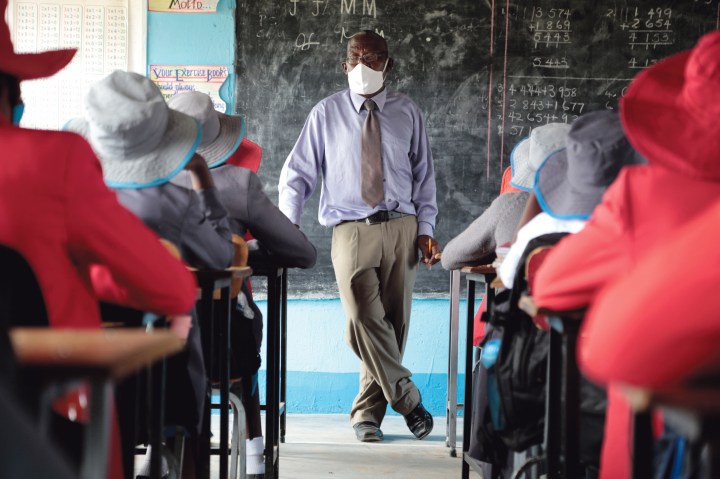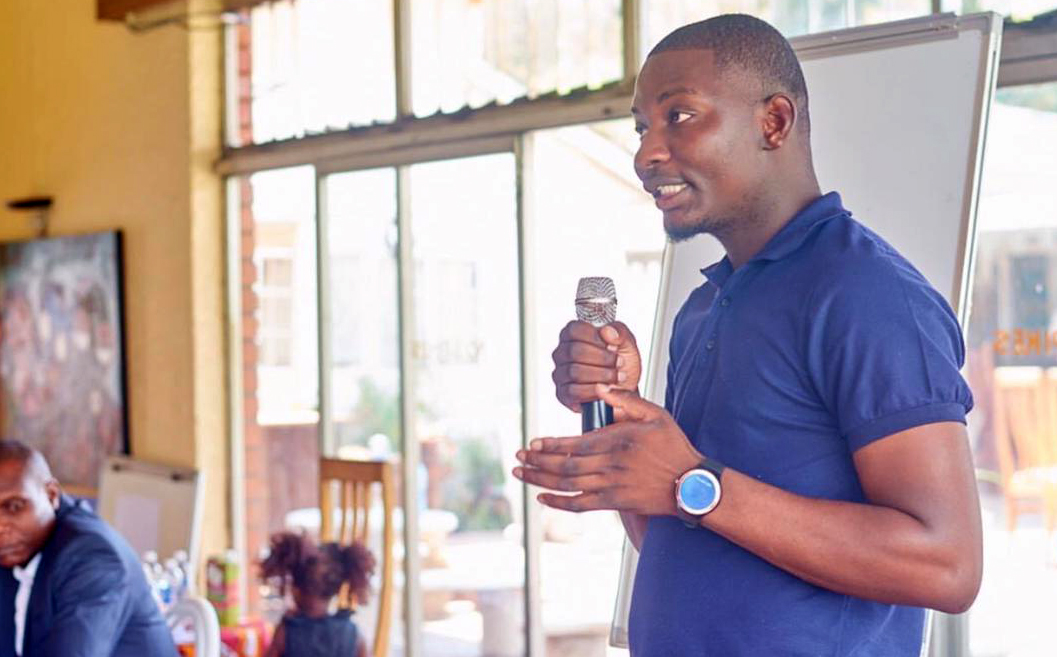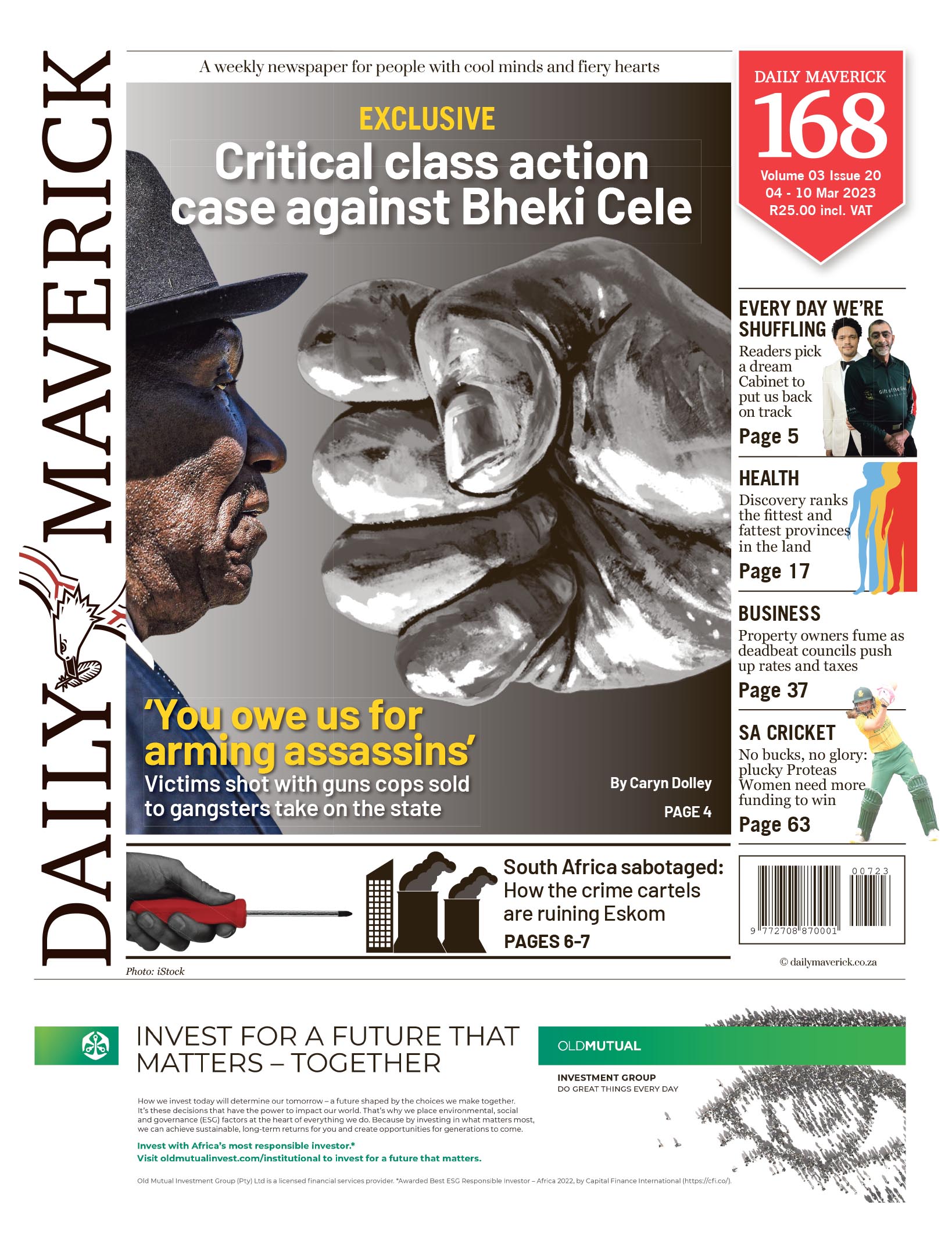ANOTHER BRICK IN THE WALL
‘Mnangagwa has reduced us to paupers’ – Zimbabwean teachers struggle to survive

Some teachers, who say they must now scavenge for food, maintain that despite being accused of ruling Zimbabwe with an iron fist, at least Robert Mugabe valued their profession.
Several Zimbabwean teachers downed tools on Wednesday this week demanding more pay and an improvement of their working conditions amid a worsening economic situation that is causing headaches for President Emmerson Mnangagwa’s government ahead of general elections expected around August this year.
Many of the country’s teachers, like several other professionals and thousands of ordinary citizens, sang revolutionary songs and danced when the country’s now late former president Robert Mugabe was forced to resign in November 2017 following a bloodless coup endorsed by the international community.
Just six years after Mugabe’s unceremonious exit from the country’s highest office, many of them are now regretting ever marching in the capital Harare, demanding his ouster, because the “new dispensation” is allegedly turning a blind eye to their plight. Mnangagwa promised a raft of socioeconomic and political reforms when he took office.
‘We are now a laughing stock’
One such educationist is Maxwell Basiyavo – a secondary school teacher-cum-trade unionist who works in the Guruve district of Mashonaland Central Province, itself a stronghold of President Mnangagwa’s ruling Zanu-PF party.
“We thought Mnangagwa was going to address our concerns (when he took over from Mugabe) but we have seen that he is not interested in dealing with bread-and-butter issues that affect us as teachers; he has reduced us to mere street beggars. At some point when Mugabe was in power we used to command some respect in society but we are now a laughing stock,” says Basiyavo who was recently arrested for allegedly failing to feed his 10-year-old daughter.
Basiyavo, who started his activism when Mugabe was still in power, says he was now being victimised by the new political order for his trade unionism.
“After I was granted bail by the court I was then attacked by the same police officer who arrested me and another known Zanu-PF activist here in Guruve. I have since reported the two cases to the police. They are targeting me for my activism but I refuse to be intimidated,” the defiant Basiyavo told Daily Maverick.
The Zimbabwe Republic Police’s national spokesperson, Assistant Commissioner Paul Nyathi, said: “I am yet to receive that information and I will update you as soon as I have some details at hand.”
Mugabe, who was a teacher before he threw away the chalk for active politics where he led the southern African country’s economy into the abyss through his controversial land reforms, was accused by his critics of ruling Zimbabwe with an iron-fist. However, some teachers like Winnet Kamuchanyu, say that despite his shrewdness, he valued their profession.
“Mugabe was even better than Mnangagwa because under the government of national unity when he (Mugabe) shared power with Morgan Tsvangirai (the late founding president of the opposition Movement for Democratic Change) teachers were earning an average of $540 per month but we are now getting only$240 per month,” said Kamuchanyu. “But surprisingly Mnangagwa sees nothing wrong with this discrepancy, especially at a time when prices of basic goods and services are shooting through the roof.”
A Chegutu-based teacher who refused to be named said she can’t afford sanitary pads on her paltry salary.
“I have three children who also need sanitary pads but we have resolved to use torn garments as substitutes because I have to buy essentials like food with the little money that they (authorities) call a salary; the money is not even enough for our basic necessities,” she said, choking back tears.
The teachers’ day-to-day struggles were summed up by Obert Masaraure, president of the Amalgamated Rural Teachers Union of Zimbabwe:
“The government of Emmerson Mnangagwa has presided over the erosion of the dignity of the teaching profession and the teachers themselves. A monthly bill to cater for a family of five now amounts to around $1,200. A teacher, on the other hand, earns a gross income of around $240 per month. This monthly income includes a housing allowance pegged at $7.50 at a time where rentals for a low-income family of five are pegged at$200,” said Masaraure.
Read in Daily Maverick: “Plight and poverty — ‘I earned more as a farmworker in South Africa than as a maths teacher in Zimbabwe’”
“Teachers cannot afford food, healthcare, education, clothing, accommodation and transport, among other basics. Mnangagwa has reduced teachers to paupers. Day in, day out our teachers have to scavenge for food, walk to work and sleep in an uninhabitable sanctuary. Teachers’ children are sent away from school because teachers can’t afford to pay school fees.”
Greener pastures
Masaraure says thousands of teachers have also joined other professionals in the great trek to the West where they are now doing menial jobs.
A recent announcement by the British government on the eligibility of Zimbabwean teachers to work in that country also sparked a rise in skills flight. Statistics released by the UK government show that between 2019 and September 2022 the number of Zimbabweans granted work visas to work in Britain spiked 1,576%, from 439 to 8,363.
“Ninety percent of Zimbabwe’s teachers want out of Zimbabwe; unfortunately, they can’t all be accommodated globally so they are forced to stay. A big number has left and the government has failed to recruit replacements. The teacher-learner ratio has ballooned to up to 1:140 in some schools. The education sector is collapsing,” said Masaraure.
This was echoed by Takavafira Zhou, president of the Progressive Teachers Union of Zimbabwe, who called on the education ministry to employ more teachers.
“We have a total of 140,000 teachers countrywide and we have a deficit of 50,000. This means that the available teachers are overburdened as that creates a high teacher-to-pupil ratio,” said Zhou.
Former chief economist in Zimbabwe’s finance ministry, Masimba John Manyanya, says the authorities should fix the country’s economy to stop the brain drain that has seen the mass exodus of many Zimbabwean professionals to the developed world.
“The current brain drain is very harmful to Zimbabwe in the short term as we lose critical skills and expertise that we will have invested in through costly educational and training programmes, and in the long term when Zimbabwe simply becomes a training ground for other markets,” said Manyanya. “This haemorrhaging bleeds agriculture, industry, health and education of skills that we need for our own national development. What it means is that the Zimbabwean taxpayer is singularly carrying costly training burdens of subsidising labour markets in the rest of the world.”

Zimbabwe National Students Union president Boris Muguti.Photo:Frank Chikowore
Boris Muguti, president of the Zimbabwe National Students Union (Zinasu), said: “Our education is now in shambles, it is at its lowest. Brilliant lecturers are leaving the country in search of greener pastures and most of those who stay teach half-heartedly because they lack the motivation to teach. They are earning peanuts.”
Despite Zimbabwe’s education system being regarded as one of the best in southern Africa over the years, Muguti says the country’s education standards are deteriorating quickly, with most tertiary institutions becoming government cash cows.
“Our institutions of higher learning have become money-making institutions. They no longer focus on producing students who are fully equipped with the ideas and knowledge to drive the economy and assist in nation-building. They are focusing on harnessing money from the students while failing to fulfil their primary mandate. They are increasing fees willy nilly, resulting in thousands of students dropping out yearly. It has also led to drug abuse among the youth and we are losing a whole generation,” he explained.
The student leader told Daily Maverick that “fees must fall” if many students are to benefit from what remains of Zimbabwe’s education sector.
Read in Daily Maverick: “Zimbabwe: Explosive cartel report uncovers the anatomy of a captured state”
“Shortage of accommodation is leading to sexual exploitation of female students, squatting and overpopulation in hostels. To resolve the accommodation conundrum, institutions of higher learning should expand their infrastructure to accommodate more students on campus… as Zinasu, we believe that the government must provide free education, to make sure every student gets access to education, as stipulated in Section 75 of the country’s constitution.”
As the crisis in the education sector shows no signs of abating, some parents, like Onward Nyarugwe of Harare, say they have no option but to go deep into their pockets to cushion the struggling teachers.
Visit Daily Maverick’s home page for more news, analysis and investigations
“Teachers are demanding incentives from us and I had to part with$40 this month alone for my four children as the teachers are charging $10 per child per month for them to conduct personalised extra lessons. The government outlawed the payment of incentives, but the only option available is to pay because sensible teaching is being done on those who [pay] for extra lessons,” said Nyarugwe.
Stalled negotiations
Despite the obstacles teachers face, Zhou accused the Harare administration of “prevaricating on salary negotiations and constantly changing goalposts”.
“Not surprisingly, the government has been evading negotiations since January and has now called for a meeting under the National Joint Negotiating Council, which is nothing but firefighting and a delaying tactic. But with high inflation on [the real-time gross settlement], teachers expected salary adjustments in January, April, July and October in line with inflationary changes, unless the government restores the US dollar salary component.
“Teachers are therefore pushing for urgent and unconditional restoration of$540 salaries as of October 2018 and the maintenance of the current $200 allowance as preconditions for 2023 negotiations,” he added.
Read in Daily Maverick: “Zimbabwe’s voters favour Nelson Chamisa over President Mnangagwa, survey shows”
Officials from the labour ministry, however, met representatives of the Zimbabwe Confederation of Public Sector Trade Unions, considered by several teachers’ unions to be an appendage of the Mnangagwa administration, to discuss labour matters.
However, Taungana Ndoro, spokesperson for the education ministry, referred questions to the labour department and the Public Service Commission.
Labour minister Paul Mavhima, who previously claimed that the government’s coffers were empty, told Daily Maverick that the government was engaging its employees with a view to find common ground.
“Negotiations are under way. Let us not pre-empt the outcome of those negotiations,” said Mavhima.

Obert Masaraure, president of the Amalgamated Rural Teachers Union of Zimbabwe. Photo:Frank Chikowore
Strike action
While the authorities appear unshaken by the teachers’ demands, the majority of the country’s educationists have organised themselves under a group calling itself #Teachers4USD, which is demanding that salaries be completely dollarised and pegged at $1,260. The angry teachers resolved to embark on an indefinite strike action that began on 1 March, with 57% of the country’s teachers not reporting for duty on the first day of the industrial action, according to the grouping’s information desk. The strike comes despite the government recently dismissing some teachers for not reporting for duty after they claimed incapacitation.
“If Mnangagwa fails to address the salary crisis, he would have failed the education sector – a clear sign that he doesn’t care about service delivery for the masses. Citizens will be forced to vote Mnangagwa out and elect a more caring government,” warned Masaraure.
Despite committing to the Dakar Framework that calls on governments to contribute at least 20 percent of budget allocations to education, Zimbabwe is spending 12 percent, according to UNICEF. This has had the effect of many adoscelent children not being in school while poverty and disabilities are triggering many of them to drop out of school. PTUZ’s Zhou says about 20 000 pupils, aggravated by poverty, early child marriages and drug abuse, are dropping out of school every year
Heading for elections
Mnangagwa and firebrand opposition Citizens Coalition for Change leader Nelson Chamisa, whose newly formed party thumped the 60-year-old Zanu-PF party in parliamentary by-elections in March 2022, are set to square off again in general elections in August 2023. Several fringe parties are also expected to contest this year’s polls whose date Mnangagwa is yet to announce.
After deposing Mugabe in 2017, Mnangagwa went on to win, albeit controversially, against Chamisa who was leading the then MDC Alliance.
Political analyst Claris Madhuku says this year’s election is one of bread-and-butter issues.
“The politics we are seeing now is the politics of the stomach, so Zimbabweans are going to vote in this year’s elections against poverty; people will vote for someone whom they see that he or she will end their suffering,” Madhuku told Daily Maverick.
The European Union has said it is ready to deploy its election observer to help Zimbabwe hold free, fair and credible elections, according to the EU’s top envoy in Zimbabwe, Jobst von Kirchmann. DM168
This story first appeared in our weekly Daily Maverick 168 newspaper, which is available countrywide for R25.


















Comments - Please login in order to comment.